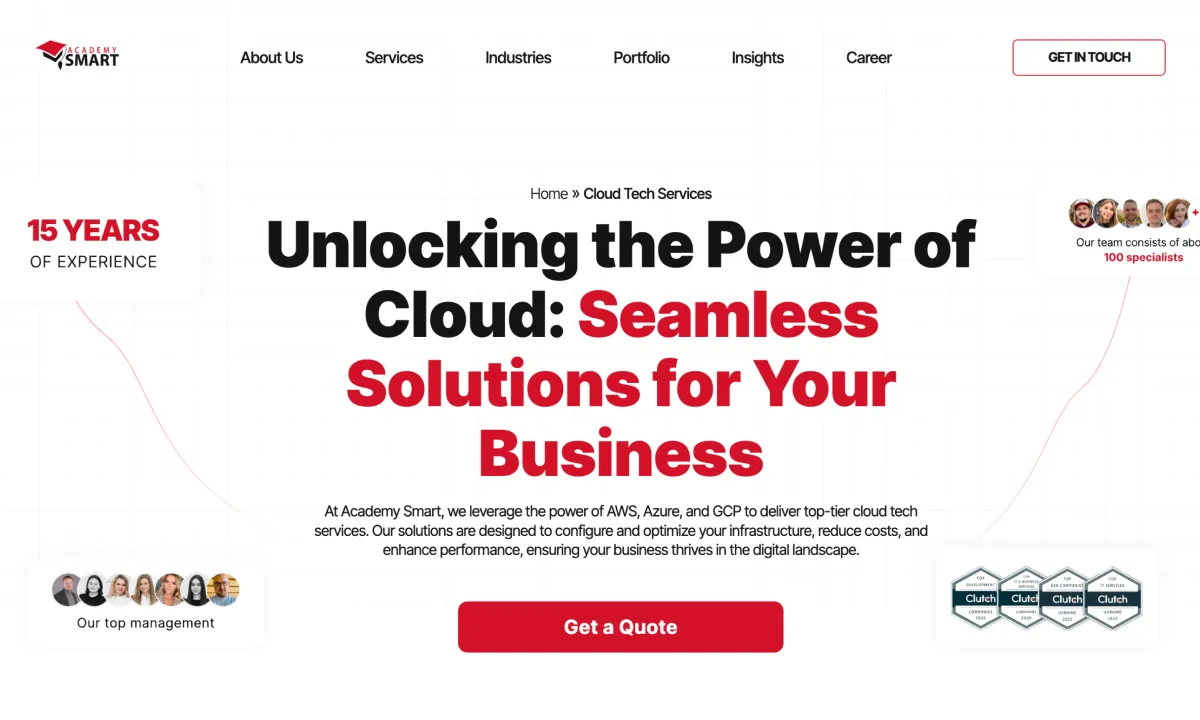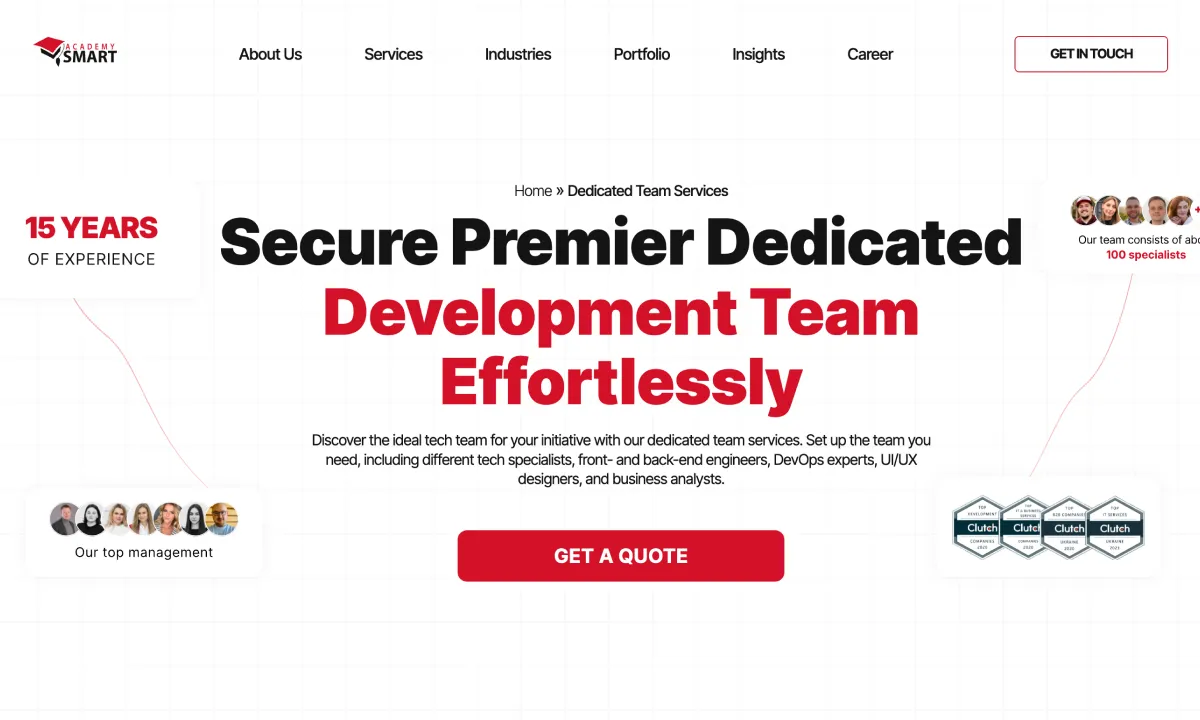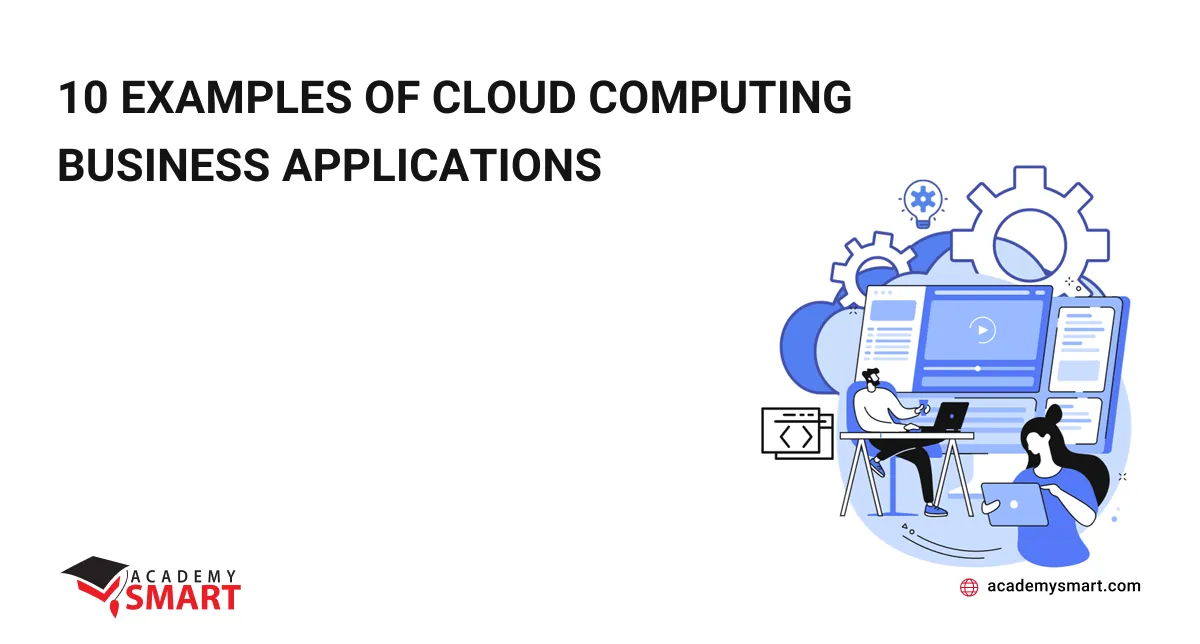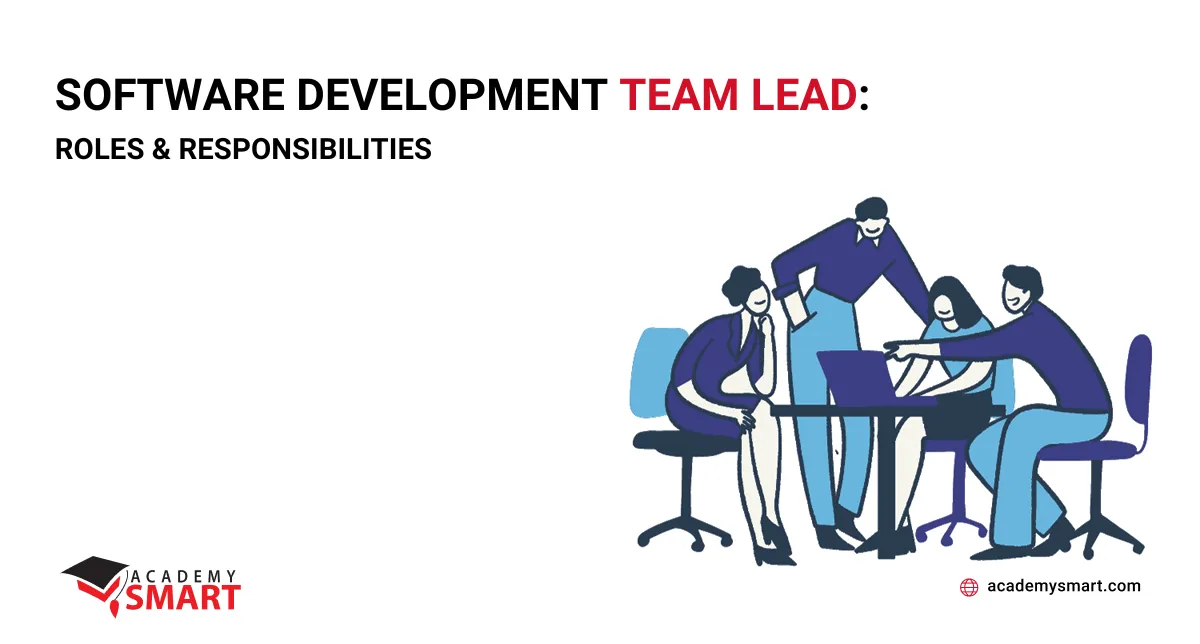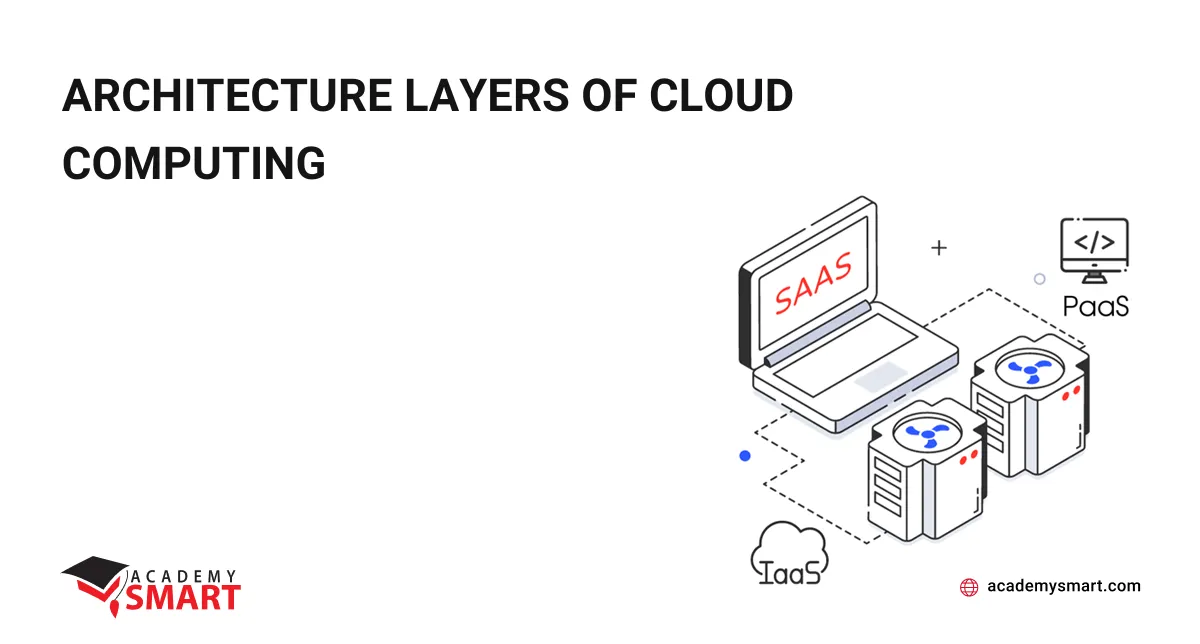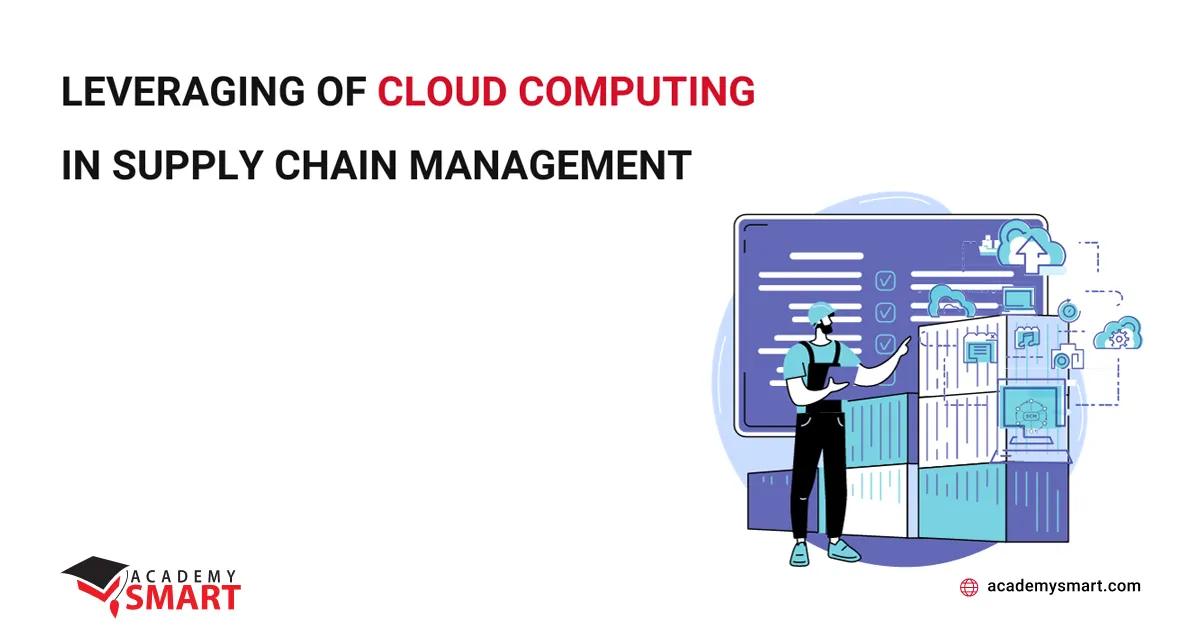
Leveraging of Cloud Computing in Supply Chain Management
Contents
Digitizing Supply Chain Management (SCM) has emerged as a critical challenge for enterprises in the last few years. Adopting cloud solutions offers today robust prospects for enhancing logistics and supplier management. Customized cloud SCM systems, tailored to specific business needs, unlock many benefits, improving process efficiency, resource scalability, and competitive advantage within the supply chain domain.
The Role of Cloud Computing in Supply Chain Management
The integration of cloud computing into supply chain management fundamentally distinguishes itself by offering a dynamic, scalable, and flexible approach to optimizing the supply chain.
Unlike traditional SCM systems, cloud applications provide businesses with the ability to centralize data, collaborate in real-time, and adapt swiftly to market changes. Cloud solutions are accessible from anywhere via an internet connection, ensuring full-time interaction across distributed teams, suppliers, and partners. The cloud’s scalability allows for rapid adjustments to meet fluctuating demands. At the same time, its flexibility accommodates seamless 3-rd party software integrations and platform updates, making it a compelling choice for companies seeking agility and efficiency within their supply chain operations.
What is cloud supply chain application
Cloud-based Supply Chain Management systems streamline logistics, procurement, and inventory management, enabling organizations to achieve cost savings and enhance operational efficiency. Furthermore, cloud solutions empower data analytics, offering valuable insights that drive more informed decision-making, ultimately making cloud adoption an attractive proposition.
Typical features of cloud-based SCM systems encompass:
- real-time supply chain visibility;
- geolocation positioning;
- supplier management tools;
- stockpile and warehouse management tools;
- advanced data analytics, including Big Data processing;
- machine learning for predictive insights;
- mobile accessibility for on-the-go management;
- collaborative planning tools;
- seamless integration with existing software systems.
This comprehensive feature set underscores why businesses should consider adopting cloud computing for SCM optimization, as it empowers them to enhance their activities in ever-evolving market conditions.
Benefits of cloud SCM applications
Cloud SCM applications offer many benefits that may cater to specific business needs. They utilize the high computing power of the cloud to support processing a multitude of parallel tasks and data streams. This capability is particularly crucial for handling the complexities of document flow, managing data from IoT devices, forecasting, and generating detailed reports.
Among the advantages of cloud supply chain solutions, you may find the following:
-
Complex dashboarding and data visualization
Cloud-based SCMSs enable the creation of intricate dashboards that provide clear, real-time insights into supply chain operations. Enterprises can visualize their supply chains, monitor key performance indicators, and track various data points simultaneously, enhancing decision-making and responsiveness.
-
Data analysis and predictive insights
Cloud SCM systems often include advanced data analytics, allowing companies to analyze vast datasets efficiently. This analysis can use predictive modeling to anticipate supply chain trends, demand fluctuations, and potential disruptions. Predictive insights enable proactive planning and the implementation of measures to address potential issues before they impact operations.
-
Detailed reporting with alerts
Supply chain management applications in the cloud provide robust reporting capabilities, including detailed and customized reports tailored to the specific needs of the organization. These reports often feature alerts that notify stakeholders about critical events or deviations from expected outcomes. This functionality ensures that crucial decision-makers are promptly informed, allowing for rapid responses to changing conditions.
-
Scalability for business growth
Cloud-driven solutions are designed to scale seamlessly, accommodating industry-specific elaboration and changes. Whether a company experiences organic growth or enters new markets, a custom cloud SCM system can adapt and expand, ensuring that the supply chain remains efficient and responsive.
-
Cost-efficiency
Cloud SCM eliminates the need for expensive on-premise hardware and infrastructure, while Pay-as-you-go or subscription models reduce ongoing costs, with service providers handling maintenance and updates. Dynamic scaling ensures you spend only on computational loads you use, and built-in redundancy minimizes downtime risks, which is critical for continuous supply chain operations.
In addition to these expected pros, custom development of cloud SCM systems introduces a range of new benefits, including:
-
Industry-specific setup
Custom cloud supply chain apps can be fine-tuned to meet the exact needs of specific industries, enabling organizations to address unique challenges and compliance requirements.
-
Enriched automation
Customized cloud SCMS can incorporate advanced automation features, streamlining repetitive tasks and reducing manual intervention in supply chain processes.
-
Enhanced integration
Custom-developed solutions seamlessly integrate existing software and legacy systems while accommodating cutting-edge technologies such as AI/ML, AR/MR/VR, IoT, and innovative APIs. This integration ensures data consistency, creating a unified IT environment capable of leveraging the force of emerging technologies and facilitating advanced data analytics, predictive insights, and real-time decision-making within the supply chain.
-
Adaptive user experience
Custom cloud SCM systems can offer a highly tailored and intuitive user interface, enhancing user adoption, teamwork, and productivity within the organization.
-
Predictive maintenance
Some industries, such as manufacturing or transportation, benefit from predictive maintenance capabilities that help prevent downtime and reduce maintenance costs.
By customizing cloud SCM systems, business fosters efficiency, adaptability, and a competitive edge in a dynamic and challenging supply chain niche. Assistance from professional teams like Academy Smart in the cloud adoption process translates into enterprise applications that are easy to use and profitable.
Examples of cloud supply chain implementation
Let’s explore some actual cases of cloud computing adoption in the supply chain management process.
Amazon, one of the world’s largest e-commerce and logistics companies, has successfully leveraged cloud computing through Amazon Web Services (AWS) to optimize its supply chain. AWS provides Amazon with scalable, on-demand computing resources, enabling the company to manage vast amounts of data, enhance inventory management, and improve order fulfillment efficiency.
Walmart, a global retail giant, embraced cloud technology for its supply chain management to improve inventory accuracy and demand forecasting. Using cloud-based solutions, Walmart enhanced its ability to track products from suppliers to stores, reducing stockouts and overstock situations, resulting in significant cost savings.
Procter & Gamble, a consumer goods multinational, adopted a cloud-based supply chain platform to gain real-time visibility into its global supply chain operations. That allowed P&G to respond swiftly to market changes, optimize inventory levels, and enhance supplier collaboration, resulting in improved supply chain performance.
Flexport, a modern international logistics company, leverages cloud-driven solutions to provide transparency and control over global supply chain operations. Their platform offers real-time tracking and management of goods in transit, simplifying the complexities of international trade and customs compliance.
Zara, a prominent fast-fashion retailer, utilizes cloud adoption to enhance its supply chain agility. This approach enables Zara to respond to fashion trends and consumer demand quickly. The company’s success lies in its ability to coordinate production, logistics, and inventory using real-time data and cloud technology.
These success stories showcase how companies across different industries have harnessed cloud computing and related technologies to optimize their supply chain management.
Developing a Customized Supply Chain Cloud Computing Solution: What to Consider
Why is it beneficial to develop custom cloud SCMS software? Off-the-shelf solutions are designed to be generic and cover many scenarios. They may include features your business doesn’t need, leading to unnecessary complexity. Customized solutions are lean and efficient, focusing on what’s essential for your operations. Their features align precisely with the unique processes and requirements of your organization. They can address your specific pain points, workflows, and operational nuances.
While the initial development of a customized solution may involve higher upfront costs, it can lead to significant long-term savings. You won’t be paying for functionality you don’t need, and ongoing maintenance costs are often lower. Custom software applications are created with robust security features that address your data protection and industry compliance requirements. This level of control is often not available with off-the-shelf options. Moreover, you have full ownership and control over your software, data, and infrastructure. You’re not dependent on the decisions and policies of a third-party software provider.
When building a cloud SCM app, several key considerations should be taken into account:
-
Cloud platform selection
Choose the right cloud platform (AWS, Azure, Google Cloud) that aligns with your company’s cloud strategy and meets performance, compliance, and budgetary requirements.
-
Data migration
Plan for smooth data migration from on-premise or web-based monolith systems to the cloud. Consider the volume and complexity of data, as well as potential downtime during the migration process.
-
Integration capabilities
Leverage cloud-specific APIs and services to extend functionality, enabling innovative solutions to address supply chain challenges efficiently and seamlessly integrate with currently used software applications.
-
Scaling
Ensure the customized system can adapt to changing supply chain requirements, simplifying growth or downsizing without disruptions.
-
Performance monitoring
Implement robust performance tracking and reporting capabilities to scan the health and efficiency of your supply chain processes within the cloud environment.
-
Supplier and partner collaboration
Consider features facilitating cooperation with suppliers and partners, promoting transparency and real-time communication within the supply chain system.
-
User experience and training
Pay attention to a user-friendly interface and provide training to supply chain professionals to ensure effective utilization of the customized cloud solution.
-
Data security
Cloud computing involves storing sensitive supply chain data in external servers. Consider robust data encryption, access controls, and compliance with industry-specific regulations to ensure the security of your supply chain data.
-
Business continuity
Develop a comprehensive disaster recovery plan to safeguard your supply chain data during unexpected incidents or system failures. Ensure data redundancy and backup mechanisms are in place.
By guiding these contemplations, enterprises can formulate a complete software specification that aligns closely with business needs while leveraging the capabilities offered by cloud technology to optimize supply chain operations. As an example, consider the case of creating a cloud robotic warehouse accounting system, which was developed by our developers.
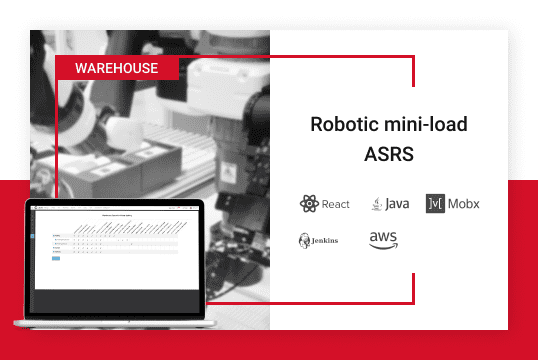
Cloud-based supply chain app for warehouse management
Move your SCM Application to Cloud with Academy Smart
The Academy Smart’s team offers to use our experience in creating custom enterprise software to simplify transferring your SCM system to the cloud.
At your service are skilled specialists in programming, AWS architecture, cloud engineering, and DevOps, as well as business analysts and IT project managers, whom you can rent to expand your staff or hire as part of a dedicated team for project delivery.
Whether you plan to customize an out-of-the-box SCM app or create your cloud business software from scratch, get in touch. Our services will be helpful.
Frequently Asked Questions: Cloud Computing and Supply Chain
What are the potential cost savings when using cloud SCM solutions?
Potential expense savings include reduced capital expenditures on hardware, minimized operational costs, and optimized resource utilization.
What steps are involved in migrating from traditional SCM to cloud-based SCM apps?
- needs assessment;
- solution selection;
- data migration;
- system integration;
- user training;
- ongoing maintenance.
Book a free consultation

Reach out to start talking today!

